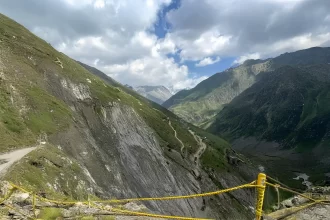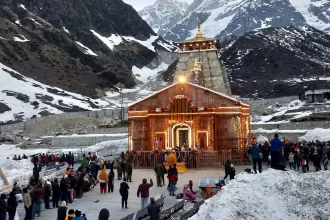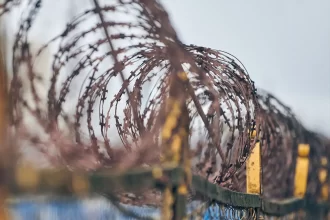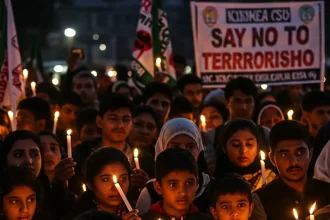The Pahalgam terror attack, which occurred in Jammu and Kashmir on April 22, 2025, has led to a full-fledged diplomatic crisis between India and Pakistan. The ghastly attack that left 26 lives lost, most of whom were tourists, has led to a chain of retaliatory measures. On April 24, Pakistan struck back at India’s actions by shutting its airspace to all Indian airlines and shutting down the Wagah border crossing. The actions follow India’s aggressive measures, including suspending the Indus Water Treaty and expelling Pakistani diplomats. The Pahalgam terror attack not only left the region in mourning but also increased tensions between the two nations. Let’s dive into the nitty-gritty of this unfolding scenario.
What Happened in the Pahalgam Terror Attack?
The Pahalgam terror attack was in the scenic Baisaran Meadow, also known as “Mini Switzerland,” near Pahalgam in Anantnag district. On a peaceful Tuesday afternoon, five or six militants struck a group of tourists who were gazing at the scenic valley. The Resistance Front (TRF), a splinter group of the outlawed Lashkar-e-Taiba, took credit for the attack, making it one of the most lethal attacks in the Kashmir Valley since the 2019 Pulwama attack. Among the victims were 25 Indians and a Nepali citizen, with numerous families left shattered. Prime Minister Narendra Modi shortened his Saudi Arabia tour to meet the crisis, making it a mark of the severity of the Pahalgam terror attack.
Witnesses reported scenes of chaos as tourists fled for their lives. One of the survivors testified, “We heard gunfire and people falling. We hide behind rocks until rescuers arrived.” The attack also rekindled controversy regarding security in tourist sites and Pakistan’s alleged patronage of militancy, a claim Islamabad rejects.
India’s Swift Response to the Pahalgam Terror Attack
India did not waste any time in responding to the Pahalgam terror attack. On 23rd April, the government held a Cabinet Committee on Security (CCS) meeting, and it led to five significant decisions. The Indus Water Treaty, a 1960 agreement relating to water sharing, was put on hold, denying Pakistan a supply of water. The Attari-Wagah border checkpost was closed down on immediate basis, and May 1 was declared as the cut-off time for those who had a valid endorsement. Additionally, all SAARC visas issued to Pakistani citizens were withdrawn, with a 48-hour notice to leave India. Pakistani defence advisors were also declared persona non grata, with instructions to leave within a week, and India retaliating by withdrawing its advisors from Islamabad.
Home Minister Amit Shah visited Srinagar, promising swift action against the perpetrators of the Pahalgam terror attack. The government’s aggressive approach is an attempt to pressurize Pakistan so that cross-border terrorism is brought to an end, something which has been a matter of contention for long.
Pakistan’s Retaliation: Closure of Airspace and Wagah Border
Pakistan retaliated with its own measures on April 24 as a response to the Pahalgam terror attack. Prime Minister Shehbaz Sharif chaired a National Security Committee (NSC) meeting, announcing all Indian airlines barred from flying over Pakistani airspace and using Wagah border crossing. It affects air routes and trade and affects Indian airlines as well as the limited people-to-people contact between nations. Pakistan closed all trade with India, including third-country trade, and reduced the strength of Indian High Commission staff in Islamabad to 30 by April 30.
The Wagah border, a symbolic crossing famous for its daily flag-lowering ceremony, will no longer be open for movement. Pakistani authorities announced, “Any attempt to divert water under the Indus treaty will be considered an act of war.” This response is a Pakistan attempt to react to India’s diplomatic barrage following the Pahalgam terror attack.
Impact on Travel and Trade
The Pahalgam terror attack has led to serious disruptions. Indian airlines, like Air India and IndiGo, can no longer fly over Pakistani airspace, requiring longer flights and more costs. Travelers to the Middle East or Europe might face delays and increased prices. The closure of the Wagah border halts the small but significant trade in goods like dry fruits and spices, which negatively affects local traders severely. Closure of the Attari-Wagah border in the 2023-24 trade amounted to Rs 3,886.53 crore and will exacerbate economic tensions.
Families on vacation and groups stranded in the line of fire are also put out. Pakistani tourists in India, like a group of Karachitis traveling by train from Karachi to Delhi, long to return home. “We want peace, not hostility, between our countries,” said one.
Global Reactions and Security Concerns
The Pahalgam terror attack has stirred global response. World leaders like U.S. President Donald Trump and Russian President Vladimir Putin denounced the act of violence, supporting India’s stand. The United Nations called for an appropriate investigation, while Pakistan brushed aside India’s accusations as “politically motivated.” Security forces in Jammu and Kashmir have launched a large-scale search for the terrorists, with a Rs 20 lakh reward for information on the terrorists.
The attack has raised fears over other travel destinations, such as the upcoming Char Dham Yatra in Uttarakhand. Improved security measures, including CCTVs and rapid response teams, are now being put in place to prevent such attacks following the Pahalgam terror attack.
The Bigger Picture of India-Pakistan Skirmish
The Pahalgam terror attack is the latest chapter in India-Pakistan’s age-old battle for Kashmir. Both nations claim Kashmir, hence they have fought wars and continue to dispute their common border. Delay of the Indus Water Treaty and diplomatic isolation are a potential escalation. Tweets on X enable public outcry, with most demanding a hardline stance towards Pakistan, although others suggest negotiating to avoid more violence.
Pakistan’s closure of airspace and Wagah border are face-saving measures, but could worsen the humanitarian and economic fallout of the Pahalgam terror attack. The world waits with bated breath as tensions rise.
What Lies Ahead?
The Pahalgam terror attack has paved the way for a tense time ahead. India vows to pursue the attackers “to the ends of the earth,” as PM Modi announced, while Pakistan prepares its next step. The closure of airspace and the Wagah border could lead to extended isolation unless diplomacy prevails. Local communities, especially in Kashmir, hope for peace and justice as investigations continue.
The financial impact on airlines, traders, and tourists will be felt for months. Meanwhile, the security forces are on alert to prevent another Pahalgam terror attack. Meanwhile, eyes are on healing the wounds of the victims and looking for a way forward in this crisis.







